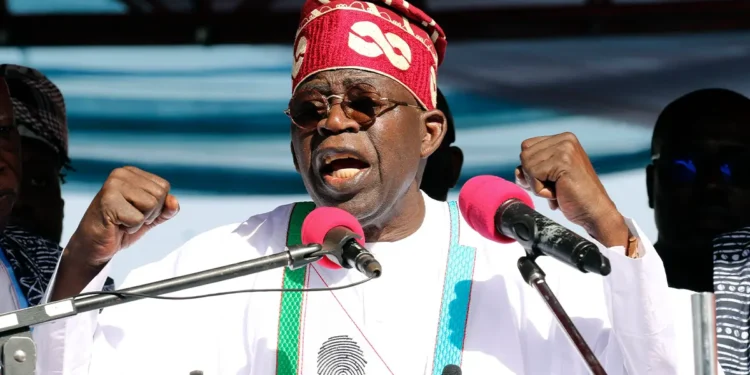Following his election win, Bola Tinubu, Nigeria's president-elect, has pledged to tackle several issues such as rising violence, industrial-scale oil theft and double-digit inflation.
Supporters tout his effective governance during his tenure as governor of Lagos from 1999 to 2007, where he was credited with improving infrastructure and other services.
However, critics remain doubtful given that many of Nigeria's issues have worsened under outgoing president Muhammadu Buhari, whose party Tinubu ran on.
Fixing Nigeria's Economy
Tinubu intends to leverage Buhari's public infrastructure programme to create jobs while eliminating legal limits on government spending.
Nigeria's revenue-to-GDP ratio is the lowest amongst its peers, and Tinubu plans to reduce corporate tax to attract investments while closing tax loopholes to boost revenue.
He also intends to phase out the popular fuel subsidy that cost the country $10 billion last year and channel the money towards infrastructure, agriculture and social welfare programmes.
Similarly, he aims to end the system of multiple foreign exchange rates, which the International Monetary Fund says is prone to abuse and creates difficulty for investors repatriating their money.
His Plans for the Oil Sector
Oil theft is a significant challenge for oil companies, which have seen a reduction in production.
To address this, Tinubu plans to establish a surveillance unit to safeguard the country's pipelines while luring new investors with tax incentives.
As Africa's leading crude oil producer, Nigeria relies on imported refined fuels. Tinubu seeks to increase domestic refining by partnering with private investors through joint ventures.
Dealing with Insecurity
Insecurity in Nigeria is a significant worry for Nigerians and foreign investors.
It ranges from kidnappings for ransom in the northwest to a 13-year Islamist insurgency in the northeast, separatist violence in the southeast, and ethnic tensions between herders and farmers in the north-central region.
Tinubu intends to increase the number of soldiers and police officers while improving their pay and equipment.
He also plans to create “anti-terrorist battalions” and special forces to combat jihadists and armed gangs while involving the military in community initiatives to “win hearts and minds.”
Human Rights Concerns
Several human rights groups, including Reuters, have reported abuses on all sides of the conflict in Nigeria's northeast and elsewhere.
In 2020, the International Criminal Court prosecutor found grounds to investigate possible war crimes and crimes against humanity by both Nigeria's security forces and insurgents.
However, the court has yet to commence the investigation.
While Tinubu sees himself as a human rights champion, critics question his ability to hold authorities accountable given his suggestion that anti-police brutality protestors who were shot at in 2020 should explain why they were in the locations where security forces opened fire.
Is Democracy Under Threat?
This year's election marked nearly a quarter-century of democracy in Nigeria, with many hoping for the most credible poll yet thanks to an increasingly professional electoral commission and measures to curb fraudulent practices.
However, malfunctions in the new equipment used to verify voters' identities and transmit results, as well as instances of violence and voting disruption in some areas, undermined confidence in the process.
Tinubu's closest challengers, Atiku Abubakar from the main opposition People's Democratic Party and the Labour Party‘s Peter Obi, rejected the result as fraudulent.
Tinubu won the election with 37% of the vote, and the turnout was only 29%, according to results from the Independent National Electoral Commission. Oxford Economics Africa called Mr Tinubu's narrow victory “bittersweet” as it could lead some to question his legitimacy as president.




















